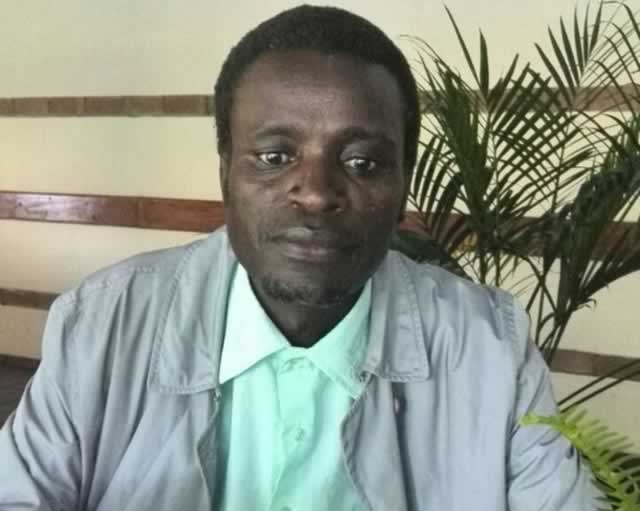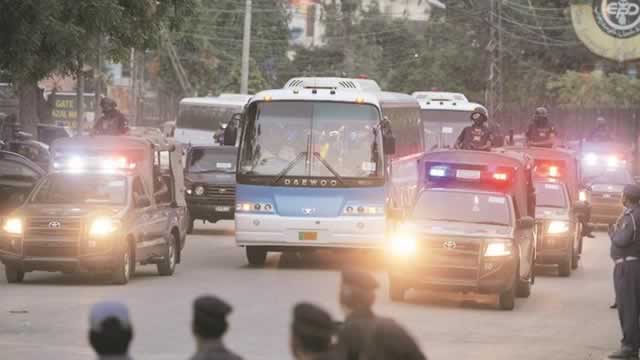Championing the care work

Roselyne Sachiti Features Editor
Henry Makavi (45) from Muture Ward, Ruzive Village in Zvishavane, is a community volunteer and a We-Care Champion under the Bethany Project since August last year.
While many men from his area spend most of their time away from home looking for gold, and binging, he has dedicated his life to do work traditionally reserved for women.
In this part of Zimbabwe and many others, care work has been a preserve of women.
Mr Makavi is a natural when it comes to caring. Before the launch of the programme, he focused mainly on taking care of 26 HIV-positive children between six and 18 years old.
With the launch of We-Care programme, he was singled out as a champion and took up the task of preaching the programme to the villagers.
Indeed, he has been a real champion.
The We-Care programme was designed to gather evidence about the problem of heavy and unequal care work and generate practical recommendations for policy makers to increase investments in services, infrastructure and communications that support care work.
The first phase of a 4-year programme is being implemented over an 18th month period from August 2014 to March 2016.
The We-Care programme initiatives are designed towards shifting of gender roles and attitudes towards unpaid care work, improving access and quality of care-related infrastructure and services as well as increasing access to time and labour-saving equipment through recognising, reducing and redistributing unpaid care work.
Oxfam is implementing the programme through partners in three provinces of Zimbabwe. The three partners are Bethany Project in Midlands (Zvishavane District), Umzingwane AIDS Network in Matabeleland South (Umzingwane District) and Bekezela Home Based Care in Matabeleland North (Bubi District).
It is under this partnership that Mr Makavi became a champion.
“We met a lot of resistance initially but ended up having significant and remarkable understanding from the community. Given our patriarchal society, it is hard to convince men to also play their role in unpaid care work,” he said.
Where he comes from, droughts are prone, and terrain mountainous.
As such, there are food challenges as most cannot till land for farming.
However, the area is rich in gold, panning of the mineral being the largest cash cow.
Children drop out of school to join the gold rush.
“I chose to work as a voluntary worker to mentor these children who drop out of school and join gold panning,” he said.
Gold panning has also come with family breakdown as there is a lot of mismanagement of funds.
Women are left at home to fend for families and do all household chores. No one cares for the women, they care for others. Only men like Makavi are stepping up their response to this challenge.
“Gold rushes usually come with alcohol abuse and other vices. There are a lot of orphans and HIV rates high. That is prevalent in my ward and has made me work hard to curb this scourge,” he added.
In his area, women do the overloaded unpaid work.
Women wake up around 4 am to fetch water from nearest sources which are over 2km from their households.
Women also spend most of their time doing unpaid care work which includes tilling land, looking after the elderly, disables and orphans and preparing their children for school.
With most women aware of the benefits of family planning, they space their children making the burden of being “always” pregnant and taking care of small children lesser.
Most households are being sustained by women.
Even those in urban areas also carry a heavy burden of care work as they go to work between 8am and 5pm or even longer, are expected to cook, do laundry, care for children, sick relatives, maintain the family garden, look for water etc.
In most cases, such women have unemployed husbands who do not help them with running the family’s finances and care work like looking for water in areas affected by water shortages.
Padare Enkundleni/ Men’s Forum on Gender National Director, Mr Kelvin Hazangwe said there is need to acknowledge that gender relations have changed and there is need to alter at personal and family levels.
He said care work is not the responsibility of women alone yet they are the ones doing more during times of economic hardships.
He added that when the economy changes, women can easily adjust and do jobs most men shun.
“Men, on the other hand cannot do the same as they were raised in way that says the man is the breadwinner. This status allows them to be in a position of power and authority.
“If not bringing bread, this affects them psychologically and emotionally sometimes resulting in domestic violence,” he said.
The breadwinner position, he emphasised, should no longer be gendered.
Mr Hazangwe explained that the challenge is that the conversation is not there and it is embarrassing for men to do care work while their wives work.
Oxfam director Mr Jan Vossen said the We-Care programme came across because of Oxfam’s interest in women’s rights.
“When we talk of women’s rights, we also talk of economic rights. The programme assists women to have economic opportunities and increase their income.
“This is usually ploughed back into the family. But what we are seeing here is an aspect of the programme that talks about care.
“Economic empowerment is one side of opportunities we want to provide for women. We also noted that women do a lot of care work and we need to find how much time they spend.
“That is why we have set up an international research of seven countries, Zimbabwe included,” he said.
He added that generally, women work longer hours than men regardless of whether they live in a developed or developing country.
“While men and women share the same day and same time, women do between 80 to 82 percent of unpaid care work while men do between 10 to 12 percent of unpaid work.
“Women therefore report 6 to 8 hours of unpaid care work per day compared to 1 to 2 hours for men,” he said.
To address this disparity in a patriarchal society Zimbabweans live in, Mr Vossen said it is important to share their research findings with the Government and also engage men at community level through traditional leadership.
“If we are to give women equal opportunity and develop themselves there is need to resolve the inequalities.
“Organisations that have contact with local communities can find out how to help them come out with solutions to problems they face. The solutions can be use of new technology in form of solar lamps, energy saving stoves, education etc,” he said.
Women in the rural areas are aware of opportunities they have missed out on because of the time they spend on care work.
He also said they have been advocating for the installation of water tanks, distribution of water collection and storage containers, provision of wheelbarrows to use during water collection and fetching firewood.
If the burden of care is lifted on women, a number of millennium development goals can be sustained post 2015, he says.
“Empowerment of women is one of the goals that we want to achieve. If we can sustain this kind of development, we can be able to lift many women out of poverty, allow many girls to go to school have a better education etc in the next 10 to 15 years. We need to involve the men. Without them, it will never work,” he added.
Mr Vossen said unpaid care work is a major human rights issue yet it often goes unrecognised even in policy formulation.
He said addressing that would benefit millions of women.
Deputy Minister of Women Affairs, Gender and Community Development Cde Abigail Damasane said the issue of addressing heavy and unequal care responsibilities for women and girls resonates well with the agenda of her ministry and the country’s development goals.
She said women spend excessive time on care work hence the need to engender the caring role.
“It is true that we have not paid much attention to how the burden of unequal care work at household level is one of the limitations to why women do not rise economically and politically,” she said.
She added that while there are other roles that society has to accept such as child bearing, both men and women have to carry the burden of care work during the day and hence the need to engender the caring role.
She said there is need to change perceptions and attitudes and share tasks evenly according to capacity at family level.
She also explained the importance of time and labour saving equipment which can relieve the intensity of care work task such as fuel efficient stoves, improved access to water and solar energy.
The four pillars of Zim-Asset namely Food Security and Nutrition, Social Services and Poverty Reduction, Infrastructure and Utilities and Value Addition and Beneficiation, she said, cannot be fully achieved without redressing the issue of unequal care work evenly and getting everyone involved in care work.
Feedback [email protected]








Comments